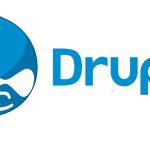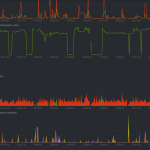NOTE: Drupal 8 will be soon oudated. A newer article to be released on October 24th on how to install Drupal 9 on FreeBSD can be found here. This is a quick, simple yet effective tutorial on how to install Drupal 8 on FreeBSD. Drupal is a robust, complete well stablished CMS used on many important websites around the globe. Extensible with modules (some sort of plugins), … [Read more...]
Live monitoring with Netdata
Netdata is a real time monitoring software that allows administrators, developers and architects have a visual representation of a system’s performance live. In short, porn for system’s tuners and other masochists but also a great tool to check system’s behaviour under load giving all members of a team to look at their part while the system is running. Since Netdata is a … [Read more...]
How to install Nagios on FreeBSD
As explained in an introduction article, Nagios is a monitoring software very well established and used in production on many environments. Results are displayed in a web page so it uses a web server to publish them to the user and needs some php code to do so. It is configured through files which happen to force the software to be restarted any time you change them and want … [Read more...]
Monitoring Systems (One)
Monitoring systems or how to get lost in fierce madness. There are many solutions to monitor systems and most of them have some kind of web interface to operate. Choosing the right tool for any job is a tedious task and for a newbie like me it is a bit harder, specially for a sensitive matter as this one. Nagios seems to be a de facto standard for many companies although there … [Read more...]
How to install the FAMP stack
You may have heard of the LAMP stack which stands for Linux, Apache, MySQL and PHP or Perl. This is the same but instead of using the GNU/Linux operating system we’ll use FreeBSD. This is the FAMP stack. There are two ways to install software in FreeBSD, packages and the ports collections. Which in the GNU/Linux world is the equivalent of of binaries and self compiled binaries … [Read more...]




